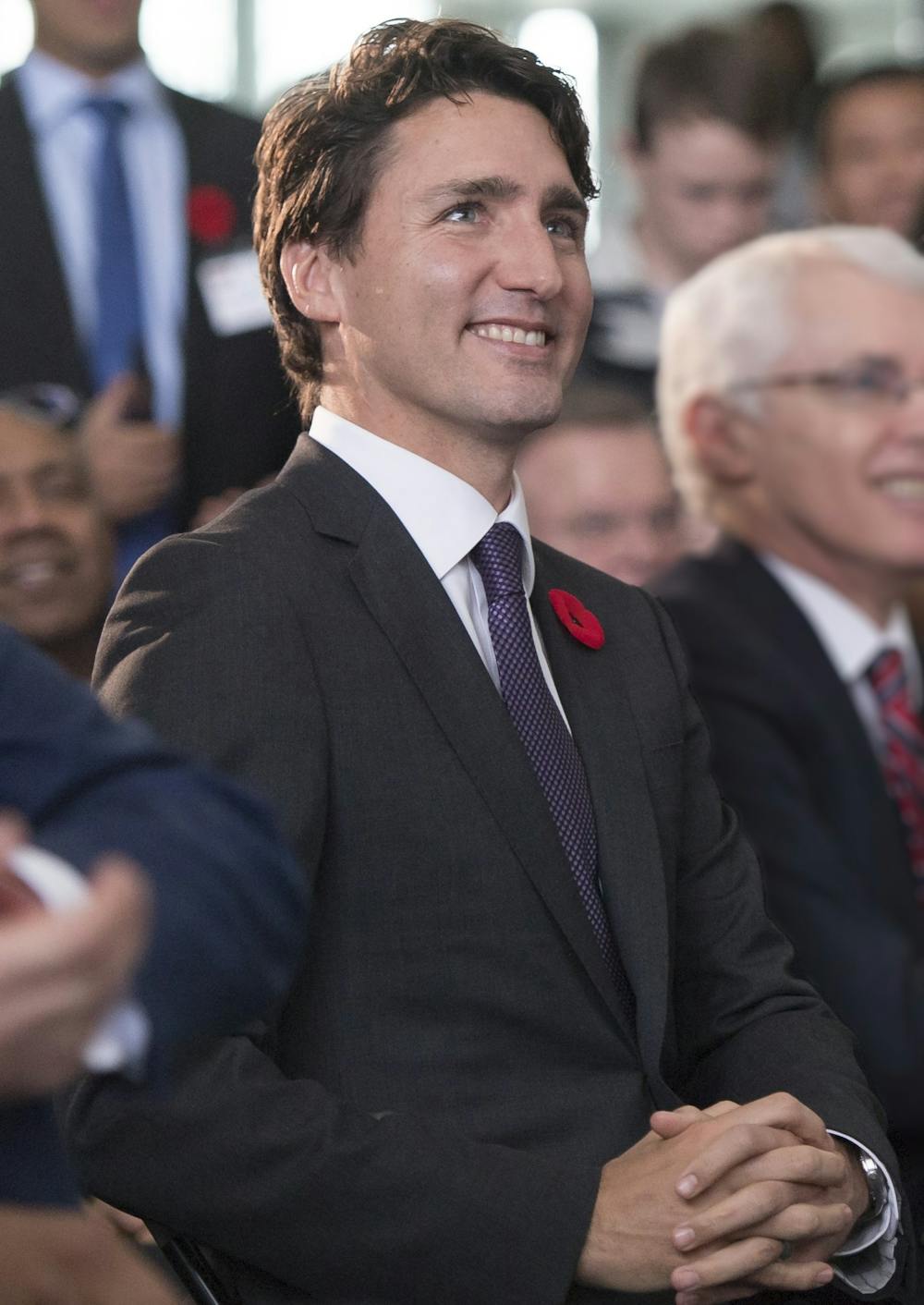While Americans watched the umpteenth Democratic debate, a monumental faceoff was happening just a few miles north of Buffalo.
October 21 marked Canada’s 43rd parliamentary election, complete with the drastic approval ratings, controversies and seat changes.
Similar to the U.S. House of Representatives and Senatorial elections, Canadian elections decide which party gains more seats in Parliament. But unlike the U.S., whichever party gains the most seats will see its party leader “crowned” prime minister.
And tension arose among our northern neighbors this election cycle.
Liberal Party leader Justin Trudeau –– PM since 2015 –– saw his party take victory, but the prime minister lost a significant amount of support due to his controversial plans for a new cross-country oil pipeline, 2001 photos in brownface, cabinet corruption and alleged sexual assault. This culminated in the Conservative Party gaining 26 seats and the Liberal Party losing 20, falling just 13 seats short of a majority.
Canadian Parliament’s 338 seats are now split between six main parties: the Liberal Party with 157 seats, the Conservative Party with 121, the New Democratic Party with 24, the Bloc Québécois with 32 and the Green Party with three.
According to UB professor Munroe Eagles, an expert in Canadian politics and a Canadian himself, minority governments –– governments where the winning party holds the most seats in Parliament but without a 170-seat majority –– are notorious for being short-lived with an average lifespan of roughly two years.
If a minority government is established, the runner-up party can propose a coalition government, where cabinet positions are split between majority and minority parties.
These governments are rare, and Canada has only had one national coalition in its entire 152-year sovereign history.
The Conservative Party motioned to form a coalition, but Trudeau rejected. Eagles said this could be “dangerous” because the Liberals could lose the “confidence of the house,” since they are unwilling to compromise.
“If you lose what’s called the confidence of the house, then the government can’t govern anymore and another party gets to try to form a government,” Eagles said. “Or you go back and have another election.”
Although Canada doesn’t have term limits, elections are typically held every two to four years. But Parliament can force an early election if a party loses the confidence of the house.
Trudeau’s recent controversies have caused his approval ratings to drop from 72% in 2016 to 46% before this election, according to a Gallup poll.
This comes after allegations from former Minister of Justice and Attorney General of Canada and Minister of Veterans Affairs Jody Wilson-Raybould, who said Trudeau pressured her not to prosecute the Canadian engineering firm SNC-Lavalin for claims of corrupt contracts with Libya.
Wilson-Raybould claims that upon pushing back, Trudeau demoted her from her positions and eventually resigned from the cabinet altogether.
Many saw this as Trudeau rejecting his own cabinet in favor of “shady deals” with foreign countries, leading to a decline in support from Liberal Party members and Canadian voters alike.
If Trudeau doesn’t gain the support of his non-Liberal Parliament colleagues, Eagles said it is likely that Liberals will lose the confidence of the house and that we will see another election before its scheduled date.
“Now Justin Trudeau can’t just say to his Liberals, ‘Support us, support your government,’ and that would be enough to get legislation through,” Eagles said. “Now he has to rely on at least some other members of Parliament from other parties.”
Reilly Mullen is the assistant features editor and can be reached at reilly.mullen@ubspectrum.com or on Twitter @ReillyMMullen.

Reilly Mullen is the editor-in-chief at The Spectrum. She is a senior majoring in political science with a journalism certificate. She enjoys Dunkin’ iced lattes and Scrabble. A former web, features, news and managing editor, she is a columnist at heart but has covered everything from UB Football to breaking news.





